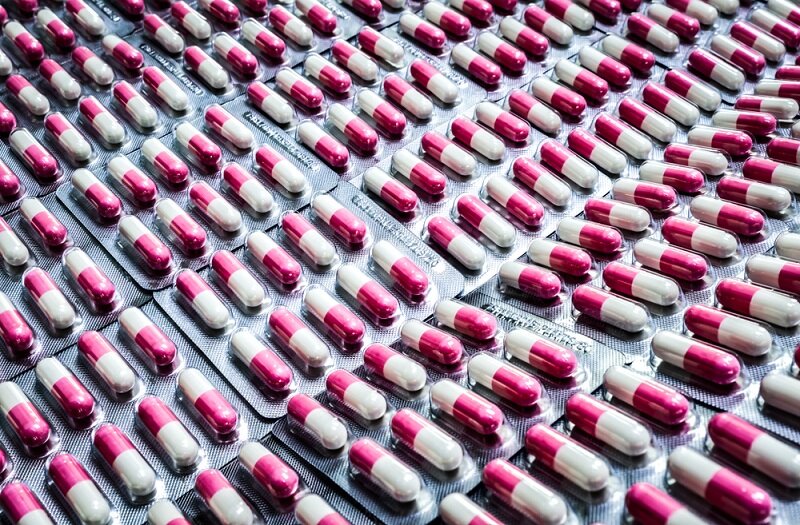What Covid-19 has changed
on pharmaceutical markets

More than one year in the pandemic, where do pharmaceutical markets stand? What are the main consequences of two or even three waves of infections and lockdowns, on clinical trials, healthcare systems, pharmaceutical sales? Last but not least, what are the recovery forecast as vaccination campaigns are being rolled out in a growing number of countries?
According to an IQVIA study of 49 markets, "the pandemic slowed aggregate sales growth to 3.3 % in 2020 from 7% in 2019". If growth is forecast to recover to 5.3 % in 2021, it is likely to be uneven across markets. In 2020, the impact on sales was variable, IQVIA study said: sales growth remained unchanged in Germany, slowed across five of the eight countries (US, Canada, UK, France, Spain), and contracted in Japan and Italy.
RELATED 2021 Q1 results: tough time for Big Pharma
But in the meantime, overall volume declined in all eight markets, with hospital volume in particular contracting sharply. Hospitals delayed non-urgent and elective surgery to free capacity for Covid-19 patients. This reduction was accompanied by a significant increase in the average price per standard unit, driven largely by a change in product mix, as demand for certain high-cost specialty treatments was maintained more broadly.• Across developed countries, lockdown measures and movement restrictions reduced patient consultations, whereas social distancing measures and increasing hygiene reduced the incidence of seasonal gastro-intestinal and respiratory infections. As a consequence, retail pharmacy demand for anti-infectives or OTC products sharply declined. " Across all eight countries, acute medications were particularly affected by the disruptions, while existing chronic prescriptions held up better, through extended prescriptions", IQVIA study explained. E-health initiatives expanded in all eight countries and telemedicine became an important tool to ensure patient access to care. Nevertheless, the growth in telemedicine was not sufficient to offset the decline in face-to-face consultations, however.
In the fields of regulatory operations, the situation remained largely unaffected by the pandemic across the eight countries, although there was some disruption to clinical trials and delays in some health technology assessments. "In Canada, there were some delays in the submission of marketing authorization applications and approvals, and in access to new products due to a slowdown in the number of new product listing agreements in 2020", IQVIA explained. The launch environment also became more challenging: in all eight countries, new product launch performance was impacted
RELATED Q1 2021: a good pace for FDA and EMA's approvals
• In the six pharmerging markets (China, Russia, India, Brazil, Mexico, Turkey), the picture is more mixed: sales sharply contracted in China but accelerated in Brazil and Russia. On a global basis, aggregate sales growth in the six markets slowed from 14.1% in 2019 to 2.2% in 2020. In contrast to the major developed markets, total audited volume contracted only in China and Turkey, despite contractions in hospital volume across the six countries.In India, which managed to control the outbreak in the first half of the year, people then suffered the consequences of a major wave of infections from September. The pandemic had a huge impact on access to healthcare (primary care consultations).
Russia, which experienced two waves of infections in 2020, is one of only two pharmerging markets registering an acceleration in sales growth in 2020, largely driven by price growth. Having controlled the initial outbreak in the first half of 2020, Turkey experienced a larger second wave in the second half of the year. The government ensured that patients with chronic diseases continued to receive their drugs, allowing these patients to collect repeat prescriptions and receive three- or six-months' supply. Sales growth was driven entirely by price growth. Brazil and Mexico both saw retail pharmacy sales accelerate during the pandemic, in part as a result of the failure of their public healthcare systems to cope with the pandemic, while private insurance coverage was impacted negatively by the economic downturn and rising unemployment.
• Thanks to vaccination campaigns, a recovery expected in 2021. According to IQVIA analysis, a recovery in aggregate sales growth to 4.3% is expected in all eight developed countries, while aggregate sales growth in the six pharmerging markets could rebound to 9.4% in 2021.
With the exception of Japan, all major developed countries launched their vaccination campaigns in December 2020. Rollout accelerated rapidly in the US and the UK, while initial progress was slow in Canada and the EU4. Vaccination rollout is expected to accelerate, however, and all seven countries are expected to have the majority of their populations vaccinated during the second half of 2021. In Japan, which launched its campaign in February 2021, vaccination rates will remain low in the first half of the year.
Progress with the rollout of vaccination campaigns will be slower in the six pharmerging markets. China stepped up its campaign in early 2021, aiming to have 40 % of its 1.4 billion population (560 million people) vaccinated by the end of July 2021, while India targets the vaccination of 300 million people by August. Russia, which was the first country to license a Covid-19 vaccine, plans to have 60 % of its population vaccinated by the end of 2021, while Turkey targets the administration of 50 million doses by the end of June. Brazil and Mexico aim to inoculate 70 % of their adult population by end-2021 and March 2022, respectively.
